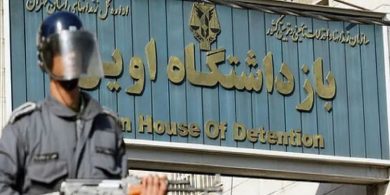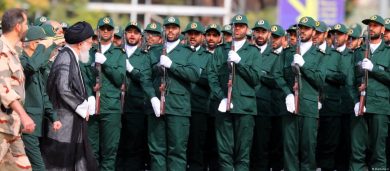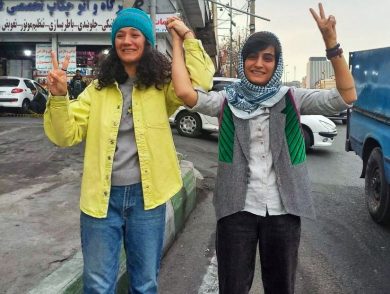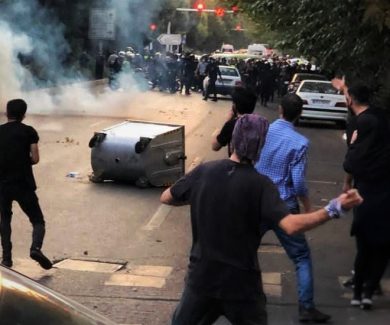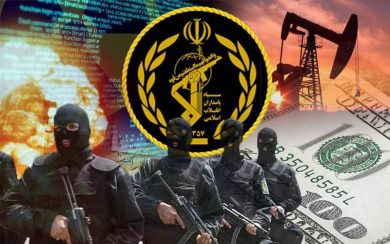The Islamic Revolutionary Guard Corps (IRGC), Iran’s elite military force, is widely recognized for its role in suppressing dissent, supporting terrorism, and destabilizing the Middle East. Less well-known, however, is its involvement in the global drug trade—a hidden yet lucrative source of funding for its operations. By leveraging its strategic position in Iran and its extensive international networks, the IRGC has become a significant player in the trafficking of narcotics. This article explores the IRGC’s role in the drug trade, the mechanisms it employs, and the implications for global security.
The Nexus Between the IRGC and the Drug Trade
The IRGC’s involvement in the drug trade stems from its need to sustain and expand its vast operations, which include supporting proxy groups, funding terrorism, and maintaining its grip on Iran’s economy. Sanctions and international isolation have severely limited Iran’s access to legitimate financial resources, forcing the IRGC to seek alternative revenue streams. The drug trade has proven to be a highly profitable avenue for generating funds while also undermining its adversaries, particularly in the West.
Iran’s geographical position makes it a critical link in the global drug trade. Located between Afghanistan, the world’s largest producer of opium, and Europe, a major consumer market, Iran serves as a natural transit route for narcotics. The IRGC exploits this geography to facilitate the movement of drugs while profiting from trafficking activities.
How the IRGC Operates in the Drug Trade
The IRGC uses its military, logistical, and intelligence resources to dominate drug trafficking networks. Its methods include:
1. Smuggling Networks
The IRGC controls key smuggling routes across Iran’s borders, particularly with Afghanistan and Pakistan. These routes are used to transport opium, heroin, and methamphetamines into global markets. By leveraging its military infrastructure, the IRGC ensures the safe passage of narcotics through Iran.
2. Corruption and Collusion
The IRGC uses its influence over Iranian customs, border guards, and local officials to facilitate drug trafficking. Corruption within these institutions enables the IRGC to bypass law enforcement and avoid scrutiny.
3. Ties with Criminal Networks
The IRGC collaborates with international drug cartels and criminal organizations to distribute narcotics. These partnerships allow it to expand its reach into lucrative markets in Europe, the Middle East, and North America.
4. Proxies and Front Companies
The IRGC often uses proxies and front companies to conceal its involvement in the drug trade. These entities provide cover for smuggling operations and enable the laundering of drug money into legitimate businesses.
Case Studies of IRGC-Linked Drug Operations
Several cases have highlighted the IRGC’s role in the global drug trade:
1. Drug Trafficking in Afghanistan
Afghanistan produces more than 80% of the world’s opium, much of which passes through Iran. The IRGC has been implicated in facilitating the transport of Afghan opium through its smuggling networks. Reports indicate that the IRGC provides logistical support and protection to traffickers, profiting from the trade while expanding its influence in the region.
2. Hezbollah and the Cocaine Trade
Hezbollah, a Lebanese militant group backed by the IRGC, has been deeply involved in the global cocaine trade. Investigations by the U.S. Drug Enforcement Administration (DEA) have revealed Hezbollah’s role in smuggling cocaine into Europe and laundering drug money through elaborate financial networks. The IRGC benefits indirectly by channeling funds from Hezbollah’s drug operations into its own activities.
3. Methamphetamine Production in Iran
Iran has become a major producer of methamphetamines, commonly known as “crystal meth.” The IRGC is suspected of controlling large-scale methamphetamine production facilities in Iran, supplying both domestic and international markets. This trade has not only generated significant revenue for the IRGC but also exacerbated public health crises in Iran and beyond.
Impact of the IRGC’s Drug Trade
The IRGC’s involvement in the global drug trade has far-reaching consequences for security, governance, and public health:
1. Funding Terrorism and Proxy Wars
Revenue from drug trafficking enables the IRGC to fund its proxy groups and sustain its regional interventions. Organizations like Hezbollah, the Houthis in Yemen, and Shia militias in Iraq benefit directly from IRGC funding, perpetuating cycles of violence and instability.
2. Undermining Sanctions
Drug trafficking provides the IRGC with an alternative source of hard currency, allowing it to circumvent international sanctions. This undermines efforts to weaken the IRGC’s financial networks and disrupt its operations.
3. Destabilizing Societies
The IRGC’s role in the drug trade contributes to the proliferation of narcotics worldwide, fueling addiction, crime, and social unrest. This destabilization serves the IRGC’s strategic objectives by weakening its adversaries, particularly in Europe and North America.
Efforts to Counter the IRGC’s Drug Operations
Governments and international organizations have taken steps to combat the IRGC’s involvement in the drug trade. Key measures include:
1. Sanctions on IRGC-Linked Entities
The United States has imposed sanctions on individuals and entities linked to the IRGC’s drug trafficking activities. These sanctions aim to disrupt financial networks and expose the IRGC’s role in the trade.
2. Intelligence and Law Enforcement Operations
Collaborative efforts between intelligence agencies and law enforcement have led to the dismantling of IRGC-linked drug networks. For example, the DEA’s Project Cassandra targeted Hezbollah’s cocaine smuggling operations, revealing ties to the IRGC.
3. Regional Cooperation
Countries in the region, including Afghanistan and Pakistan, have worked to enhance border security and combat drug trafficking. However, corruption and the IRGC’s influence remain significant obstacles.
Challenges in Addressing the IRGC’s Drug Trade
Countering the IRGC’s involvement in the drug trade is fraught with challenges:
• Complex Networks: The IRGC operates through proxies, front companies, and criminal organizations, making it difficult to trace and disrupt its activities.
• Corruption: Corruption within law enforcement and border control agencies in the region allows the IRGC to operate with impunity.
• Geopolitical Factors: Regional rivalries and competing interests often hinder international cooperation against the IRGC.
Conclusion
The IRGC’s involvement in the global drug trade is a hidden yet critical aspect of its operations, providing a steady stream of funding for terrorism, proxy wars, and regional destabilization. By exploiting its strategic position and extensive networks, the IRGC has entrenched itself as a major player in global narcotics trafficking. Addressing this challenge requires a coordinated international response that includes targeted sanctions, intelligence sharing, and enhanced enforcement mechanisms. Exposing and dismantling the IRGC’s drug operations is essential not only for disrupting its power but also for mitigating the far-reaching consequences of its actions on global security and public health.
Join Our Newsletter!
Stay informed with the latest updates, news, and ways to take action in the fight for justice and global security. Sign up now to get updates delivered straight to your inbox!

